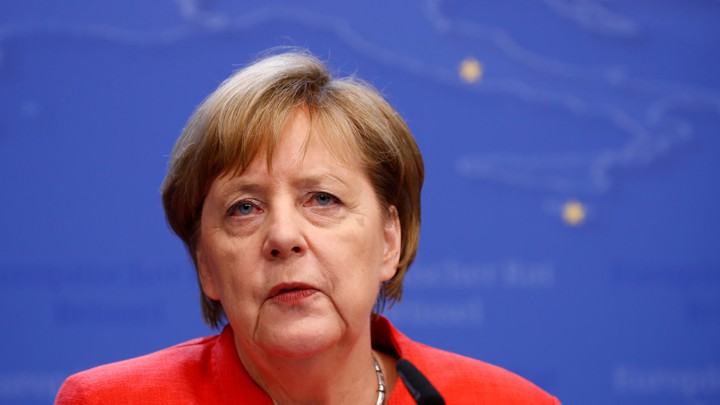Prime Minister Boris Johnson is set to tell German Chancellor Angela Merkel on Wednesday that unless she agrees to change the Brexit deal, Britain will leave the European Union on Oct. 31 without a deal.

More than three years after the United Kingdom voted to leave the EU, it is still unclear on what terms – or indeed whether – the bloc’s second largest economy will leave the club it joined in 1973.
Johnson, a Brexiteer who won the premiership a month ago, is betting that the threat of ‘no-deal’ Brexit turmoil will convince Merkel and French President Emmanuel Macron that the EU should do a last-minute divorce deal to suit his demands.
But with just over 10 weeks left until the United Kingdom is due to leave, the EU has repeatedly said it will not renegotiate the Withdrawal Agreement struck by Johnson’s predecessor, Theresa May, and that it will stand behind member state Ireland.
Merkel on Tuesday said she was open to “practical solutions” to the Irish border insurance policy or ‘backstop’ that Johnson says is unacceptable – but that the Withdrawal Agreement was not to be reopened.
Germany’s top-selling daily Bild named Johnson the day’s “loser”, saying he was “biting on granite” and that Merkel had already rejected his request for new negotiations.
Ahead of his first foreign trip as prime minister, Johnson said the EU was being “a bit negative” but that a deal could be done. If not, he said, then the United Kingdom would leave without one.
In Washington, U.S. President Donald Trump offered Britain help, while criticising the EU.
“They have not treated the UK very well,” he said. “That’s a very tough bargain they are driving, the European Union. We are going to see if we can work something out.”
Once the nightmare scenario on the extreme edge of probability ranges, a ‘no-deal’ Brexit is now seen as a realistic possibility by both governments and investors.
Amid the political turmoil in London, little is clear. The alternatives are a delay, a last-minute deal, an election or even cancelling Brexit.
With talk of an election swirling in Britain, an online survey suggested Johnson’s tougher stance on Brexit was dramatically reviving his Conservative party’s fortunes.
The Kantar opinion poll put the Conservatives on 42%, up from 25% in May, when the last comparable poll was taken, and the main opposition Labour party on 28%, down from 34%.
Wrenching the United Kingdom out of the EU without a deal means there would be no arrangements to cover everything from post-Brexit pet passports to the trade arteries that pump capital, food and car parts between the two neighbours.
Many investors say a ‘no-deal’ Brexit would send shock waves through the world economy, hurt the economies of Britain and the EU, roil financial markets and weaken London’s position as the pre-eminent international financial centre.
With such a gulf between the British government and the other 27 members of the EU – whose economy combined is worth $15.9 trillion – some diplomats said Johnson was using international diplomacy for domestic politics.
Some fear that Johnson is setting up a confrontation with the EU that will allow him to reap more domestic political capital from what he will cast as EU intransigence.
“Spinning gold from straw has never yet worked. That is also true of Brexit,” said Germany’s Europe minister, Michael Roth. “Peace in Northern Ireland and the integrity of the internal market are non-negotiable for the EU.”
Johnson wrote a four-page letter to European Council President Donald Tusk on Monday asking the EU to axe the Irish border “backstop”. EU leaders in Brussels and the other 27 member states issued a swift and unanimous rejection.
Kindly follow us on twitter:@AfricanVoice2










